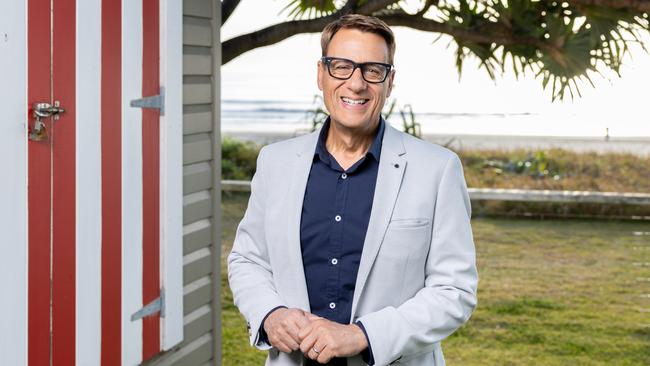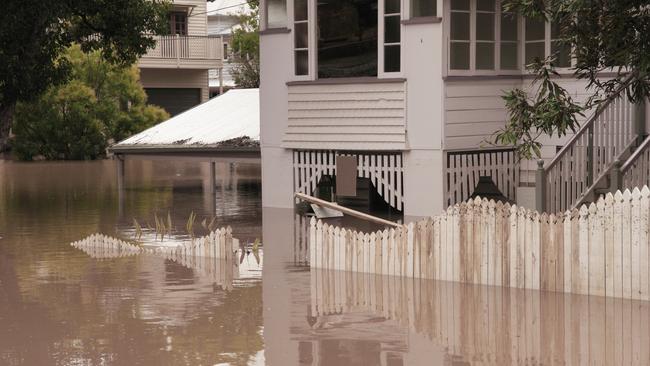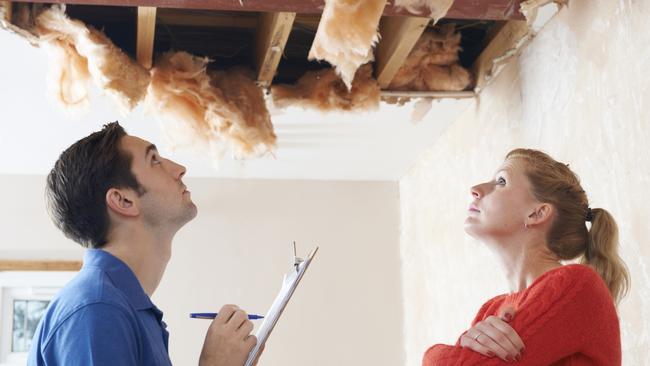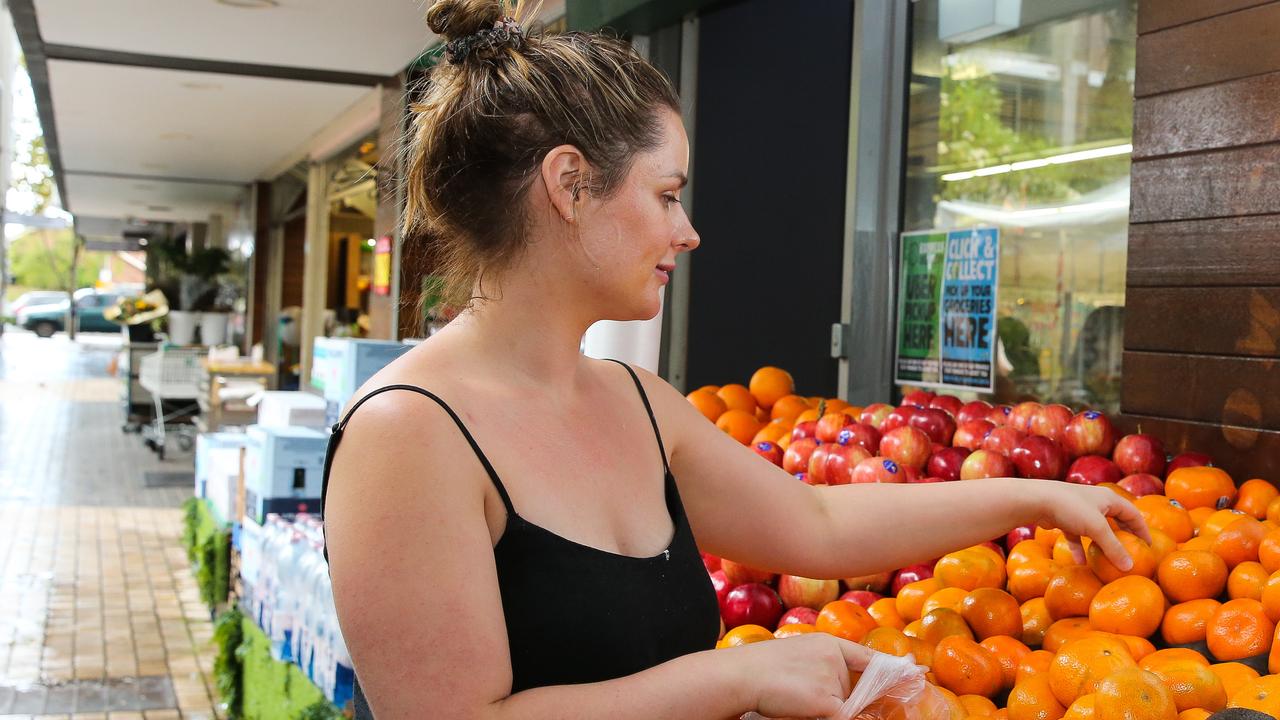Seven deadly sins burning a hole in all our wallets
Time-poor households have fallen victim to creeping prices that could easily be avoided, says property expert Andrew Winter, with seven financial sins in particular the deadliest for wallets.

Property
Don't miss out on the headlines from Property. Followed categories will be added to My News.
Failing to seek out better deals on insurances, energy and home loans could be costing some Aussie homeowners hundreds – potentially thousands – of dollars a year.
Time-poor households have fallen victim to creeping prices that could easily be avoided.
Shopping around to avoid the sting of these seven deadly expenses could add up to thousands – that’s money that could help pay off your mortgage and other debts faster.
Home Loans
Compare the Market’s latest research from September 2023 found that almost half of the Australian homeowners we surveyed could be getting stung with higher back-book rates and fees because they’ve never refinanced.
Analysis of some of the rates available from the Big Four showed the average difference between front-book and back-book rates is around 1.99 per cent.
Therefore, a person with an owner-occupier $750,000 loan could see reductions of up to $1,023 a month if they switched from a rate of 8.54pc to 6.55pc.
The home loan market is super competitive with banks and lenders jostling for new customers.
Use this knowledge to your advantage. If your variable rate isn’t somewhere between 5.9pc –6.1pc, there’s a good chance that you could do better.

Energy
If it’s been more than a year since you’ve switched plans, you’ve likely rolled onto a plan with higher rates.
In regions with competitive energy markets, the Default Market Offer (DMO) or Victorian Default Offer (VDO) reflect the benchmark price that retailers charge consumers for electricity on standing offer contracts.
It’s rarely the cheapest price available and there are usually market offer contracts that offer better pricing and sweeteners for new customers. Around 10 per cent of all households are currently on a standing offer – meaning they could be paying more than they need to for electricity.
When we recently searched for electricity plans in South East Queensland we found options with estimated pricing up to 18 per cent less than the reference price. In a year, this could mean an estimated $350 back in hip pocket for an average Queensland household with a single rate meter in the Energex distribution area who uses 4613kwh per year.
Time and time again energy is rated Australia’s most shocking household expense.
Actual savings will depend on a household’s usage but with electricity prices as high as they are, people really can’t afford to spend more than they need to yet we know hundreds of thousands of households are on the worst possible offers.

Home insurance
Insurance costs have surged in the past year in the wake of floods, fires and other wild weather events. But that doesn’t mean consumers should accept price hikes lying down.
One Compare the Market customer saved $1,280 on their annual home and contents premium by comparing and switching policies after being notified her previous home and contents premium was increasing 24 per cent.
Complacency is seldom rewarded, as the best offers are often used to attract new customers.
In other words, it pays to shop around. Next time your renewal notice comes around, put your policy under the microscope and do some digging.
A common mistake we see is people including their land value in their sum insured for home insurance. This could add hundreds of dollars to your premium.
Spend some time looking into what it actually costs to rebuild a home at today’s prices to make sure you’re not either over-estimating the number or leaving yourself exposed should the worst ever happen.
Contents insurance
What would it cost to replace all the contents in your property if you were to lose it all? It’s not an easy question to answer.
Luckily, there are some great calculators to help you take out the guesswork. Still, far too many people over-estimate or underestimate the value of their belongings, which could mean they’re either paying too much for cover or leaving themselves exposed should the worst ever happen.
For example, we ran quotes for a household looking to insure $150,000 in contents and found that by reviewing their replacement costs and adjusting to $100,000, quotes for their cover were up to $149 less a year.
Adjusting your excess can also help you reduce your premium, though you’ll pay more should you ever need to claim.

Subscriptions
A Compare the Market survey found that the average Aussie is spending $30 a month for two streaming services, adding up to $360 a year.
At-home entertainment is still reasonably cheap when compared to a trip to the cinemas that we know can cost upwards of $60 for a family.
But there are still plenty of ways to save with some cheaper plans available for people happy to sit through ads or opt for a limited number of screens.
You can also try maximising your streaming use on one service for a couple of months before switching to the next. While you’re at it go through the subscriptions in your phone’s app store to remove any services you’re no longer using.
Mobile phones
We’ve all been sucked into the race to have the latest and greatest devices. Next time your phone plan is up yourself, ‘do I really need a new phone?’
Sticking with an old device and switching to a cheaper phone plan could save you hundreds of dollars a year.
Keeping your old phone and switching to a bare-bones prepaid plan, instead of automatically upgrading to a new phone and post-paid plan could save hundreds in a year.
For example, with prepaid plans available at $30 for 30 days usage and a new post-paid plan for a Google Pixel 7 with a major carrier starting from over $90 a month, the difference could be over $700 a year.
If you take up a product that has customer incentives and rewards, be sure to maximise them. Some providers may give you discounts off your grocery shop which could help offset other household expenses.

House repairs
About two in five Australians we surveyed have faced unexpected home maintenance issues in the past 12 months including roof leaks, broken appliances and plumbing issues. On average those people had spent $2900 on repairs.
A lot of people don’t have time to ring around to get quotes for repairs and maintenance jobs and they’re getting stung as a result.
Be sceptical if a provider has a call-out fee to provide a quote. You might feel obliged to agree because you’ve already committed but this could mean you’re missing out on better prices.
Check your community Facebook groups and create a list of trusted local tradespeople to provide quotes. In some cases, the difference can be hundreds, sometimes thousands of dollars.
A colleague recently called out two tradesmen to quote on a fence replacement and found a difference of nearly $4,000 between the two figures.
We all know challenging these everyday costs could save us hundreds. The thought of admin and paperwork can scare people off.
But comparing and switching could take less time than you think. We need to work smarter not harder to end our cost-of-living woes.
**Andrew Winter is Compare the Market’s property expert and Foxtel’s Selling Houses Australia presenter.
Originally published as Seven deadly sins burning a hole in all our wallets


